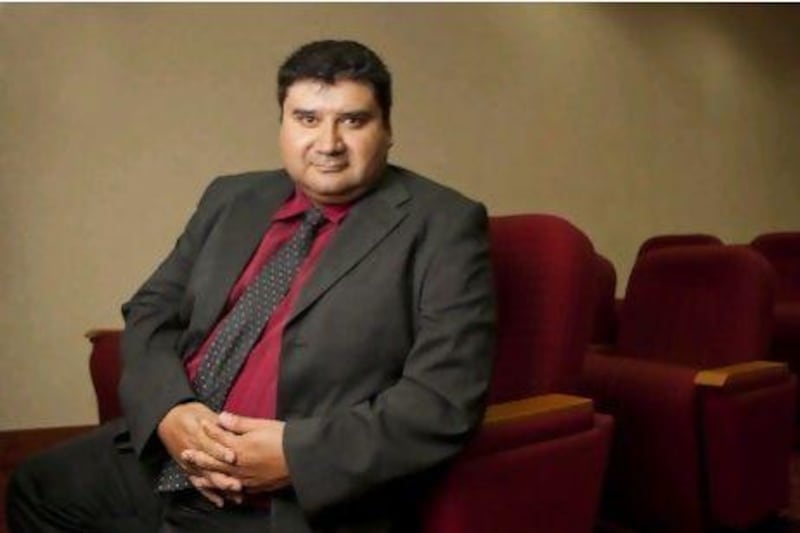Even for an established businessman, it seems like a pretty bold statement to call oneself a "master entrepreneur". But Chris Castillo, the founder and president of the consultancy Master Entrepreneur International, says every business owner can learn to become one.
"The concept of the master entrepreneur came about because I saw a lot of people start their business and work at it, but then they don't have the freedom the business should have given them. So, they become a slave to the business," says Mr Castillo, who at 41 has already started 10 companies of his own, from eateries and web-based ventures to a new mobile mechanic shop that he's franchising in Canada. "Here's the key thing: you're the owner of a business," he says. "You're not the owner of a job."
In recent weeks, Mr Castillo, a Canadian originally from Chile, has been busy in the Emirates, teaching a new training course through the University of Wollongong in Dubai on how to become a so-called master entrepreneur. He's also been consulting with companies in the region and sharing some tips on how owners can relinquish control and earn back some free time.
Move away from multitasking:
Entrepreneurs often learn skills early that don't always help them grow a venture to the next level. They tend to wear multiple hats: answering the phone, meeting clients and even cleaning floors. "When you start it off, that's great, and you need to ensure customers are satisfied," Mr Castillo says. "But you can only do that so long. After two to three years, they call me because they're starting to feel burned out."
One solution: hire help that you can trust. Some entrepreneurs stay glued to their phones during business meetings, for instance, rather than relying on a personal assistant. "The reason is because they think they can do it best themselves," says Mr Castillo. "They don't trust others." Instead, he says, entrepreneurs should free up their time from more menial, time-consuming tasks to build relations with clients to grow their business.
Use others:
Or, more specifically, other people's time and money. One way is to get creative with financing efforts. Subway's first sandwich shop was a "crummy" location, its founder has said, but while it came close to being shut down a second location was opened anyway - with some support provided by suppliers who had a lot of business to gain if the venture took off, says Mr Castillo. The chain now boasts more locations than McDonald's.
When Mr Castillo launched his own restaurant in Canada before later selling it, he sought to tap into the local community to create buzz. But instead of blowing away cash and hours on advertising campaigns, he provided coupons to nearby businesses, who freely handed them out to their own clients and helped grow Mr Castillo's enterprise in a cheaper, faster way.
Put the right systems in place:
One business owner in the Emirates who consulted Mr Castillo started a bakery. Yet, the quality and taste of his bread could vary widely. "In the back-end, we suggested they bring in a baker and have written recipes for how to do the baking, which is key because the food [shouldn't be] dependent on how the cook feels," says Mr Castillo.
The same type of approach applies to many businesses, experts say, especially those that owners hope to sell or franchise. In fact, while Mr Castillo has been away from his new mobile mechanics shop in Ottawa, he's been sending in mystery shoppers to report back on the customer service experience. "If you have these systems, and you leave for two weeks on vacation, you should be able to come back knowing the business has run really well with or without you," says Mr Castillo. "That gives you freedom. Now you're on to the journey of becoming a master entrepreneur."





